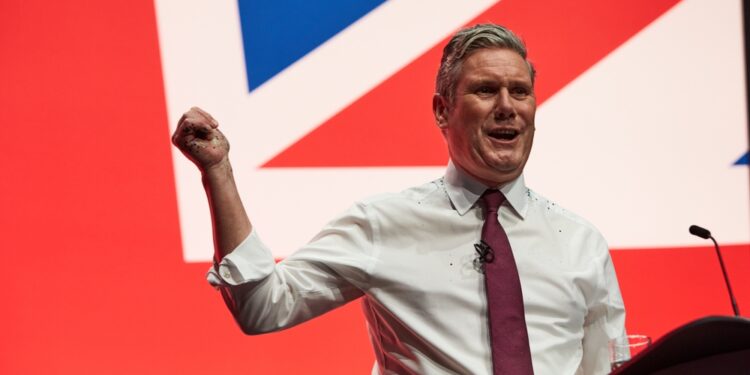Labour has won the general election with a landslide as was widely predicted – currently with a count of 412 seats, compared to 121 for the Conservatives.
“We did it!” said an enthusiastic Keir Starmer, channelling his inner Reese Witherspoon in a line from Legally Blonde – the movie about an underestimated law student who unexpectedly beat all odds to become the most successful law graduate at Harvard University.
Former prime minister Rishi Sunak was less enthusiastic, and simply said: “The Labour party has won this general election and I have called Keir Starmer to congratulate him.”.
The Conservatives lost 251 seats and gained one. It won 24% of the overall vote.
In front of Downing Street, Sunak said: “I am sorry. I have given this job my all.
He added: “I have heard your anger, your disappointment, and I take responsibility for this loss.”
He announced that following the loss he would step down as party leader – though not immediately.
Sunak said Keir Starmer was a “decent public-spirited man who I respect” and said he was proud to have served as prime minister. And then he departed 10 Downing Street to meet the King at Buckingham Palace.
Lost seats
While Sunak held onto his seat, there were several big names in the Conservative party who lost their seats, including former prime minister Liz Truss, former defence secretary Grant Shapps, Penny Mourdant, Jacob Rees-Mogg are all gone. Mourdant was identified as a possible leader to the Tory party.
Others who kept their seats included Victoria Atkins, former secretary of state for health and social care and Helen Whately, minister of state (minister for social care).
But other MPs from health and social care were not successful, including Maria Caulfield, parliamentary under secretary of state (minister for mental health and women’s health strategy) who lost to James MacCleary of the Lib Dems.
Andrew Stephenson, minister of state (minister for health and secondary care) lost to Labour’s Jonathan Hinder.
Over at the Treasury, former chancellor of the exchequer Jeremy Hunt managed to hold onto his seat, but Bim Afolami, economic secretary to the Treasury lost his seat to Labour’s Alistair Strathern.
And at the Department for Work and Pensions, Mel Stride secretary of state for work and pensions kept his seat. Jo Churchill, minister of state (minister for employment) – did not stand for her Bury St Edmunds seat, which was won by Labour. And Paul Maynard, parliamentary under secretary of state (minister for pensions) lost his seat to Labour’s Lorraine Beavers.
But Mims Davies, minister of state (minister for disabled people, health and work) – won her seat.
Lib Dems
But it was not only Labour who had reason to celebrate, as the Liberal Democrats also had a successful night, winning 71 seats.
The Lib Dems have now overtaken the Scottish National Party (SNP) to become the third largest party in Westminster. That was their objective, and they will now be assured of being able to ask two questions during the weekly PMQs.
The party won 63 new seats – the total amount of seats they were expected to win according to exit polls – and lost none.
Leader Ed Davey said he had not expected to win so many seats.
He said health and care is his top priority for this parliament.
“We will make sure this government is held to account,” Davey said.
In contrast the SNP did even more poorly than the Conservatives – falling to below 10 seats and losing their majority in Scotland, where Labour is now by far the strongest party.
Nigel Farage won his seat for the Reform party in Clacton, who won a total of four seats, below the 13 expected by exit polls.
Reform’s losses included protection adviser Mark Belch, who placed second to Labour for the Durham seat.






